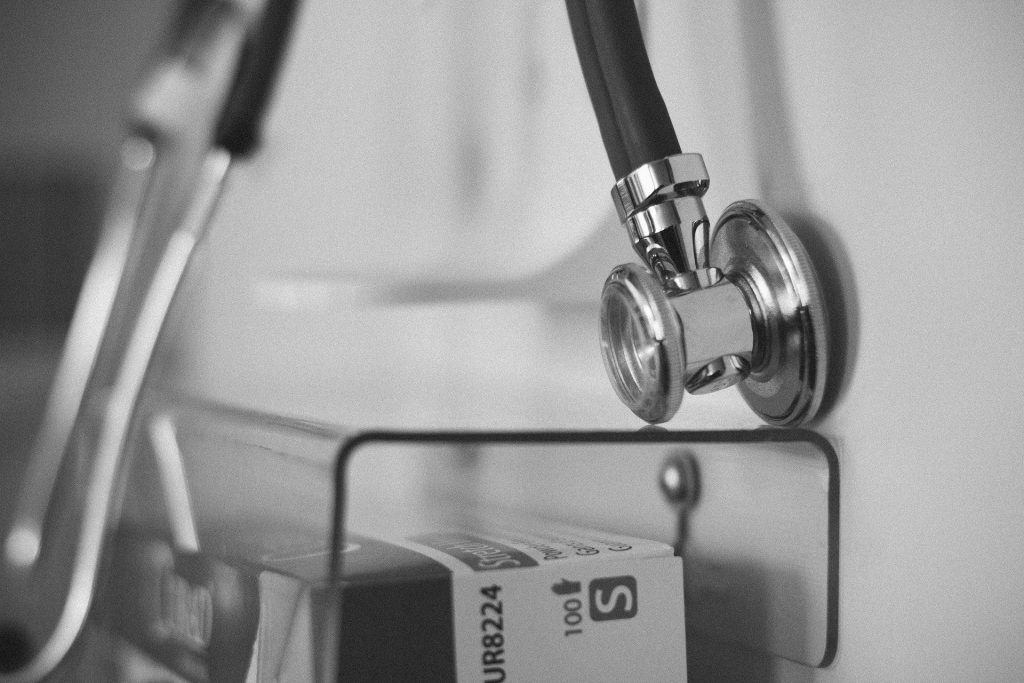
At a time when health is at the forefront of nearly everyone’s mind, the Cherry Hill Free Clinic works to ensure no patient’s wellness slips through the cracks.
In accordance with national and state restrictions on social distancing, the clinic has made its operation 100 percent remote and uses telemedicine to care for patients.
“The reason it was so critical that we offer an alternative is because we realize that there are folks in the community who have come to depend on us for their care,” said clinic founder Dr. Jubril Oyeyemi.
The Cherry Hill Free Clinic is typically open on weekends and visits are free. Physicians from nearly every local health system work at the clinic on an entirely volunteer basis, and the bulk of what they see are conditions for which people would typically go to their primary care physician, such as high cholesterol, diabetes, COPD, asthma and other chronic diseases.
Mostafa Eldasher, the clinic’s chief mission officer, said the facility had long discussed utilizing telemedicine prior to the COVID-19 pandemic, but the timing and logistics just never seemed to come together. When the pandemic started forcing businesses to operate remotely, the clinic immediately put a task force together to figure out how to get telemedicine off the ground.
The team learned that the pandemic had loosened up many of the legalities and restrictions surrounding telemedicine, so much of their previous red tape had been stripped away. The team met on a Monday, and by Thursday of that same week, the telemedicine operation was up and running.
Eldasher said estimates indicated it would take around $5,000 to fund telemedicine for a year, including purchasing software, licensing for each doctor, extra devices and upgrades to the clinic’s internet infrastructure. At that point, the clinic turned to its supporters, who quickly and eagerly donated. To date, the facility has raised around $4,000 and will continue to fundraise the rest as it goes along.
All of the clinic’s appointments were already booked through a call center, which in turn pushed that information to the clinic’s operations manager, who facilitated scheduling. From there, the patient received a text or email with an appointment time.
Eldasher said that process is still very much in place, but now, patients receive an email with both a link and their appointment time. At their scheduled time, patients can click the link and enter a virtual waiting room until their doctor joins them. If the patient does not have access to a computer, he or she is given a phone number and a meeting ID number to dial and speak with a physician.
Oyeyemi said video appointments are the next best thing to meeting with patients in person. He said while there’s undoubtedly something to be said for the tactile nature of a visit, video calls still enable him to read mannerisms, see a swollen limb or discuss symptoms.
He added that now more than ever, it’s important that patients continue to get refills on diabetic, thyroid and blood pressure medications.
“The last place we want anybody to be if they don’t have to be there is the ER, because of the risk of exposure,” Oyeyemi said.
Typically, the clinic is open two days of the week, either Friday, Saturday or Sunday. Oyeyemi said the remote operation instantly enabled the facility to add a third day of the week, and at some point, there’s a possibility it could add weekdays as well.
Oyeyemi said he fears that his patients – most of whom are already income constrained – will be those hit hardest by the pandemic. For those who can’t afford to refill their medication, the clinic has a voucher program through CVS Pharmacy. Patients can present a voucher to CVS to have their prescriptions refilled and CVS will, in turn, bill the Cherry Hill Free Clinic at subsidized cost. Oyeyemi said since the clinic took its operation remote, the number of patients in need of a voucher has doubled.
Eldasher said it is hoped the remote operation will be one more way the clinic can help combat the disparity in access to health care. The clinic doesn’t want its clients to become so consumed by fear about how they’re paying for their next meal or what to do about child care that their health suffers, he added.
“It triggers your empathy for others,” Eldasher noted. “Sure we’re providing them health care, but you wish you could do more.”
To learn more about the Cherry Hill Free Clinic, visit https://www.cherryhillfreeclinic.org.









